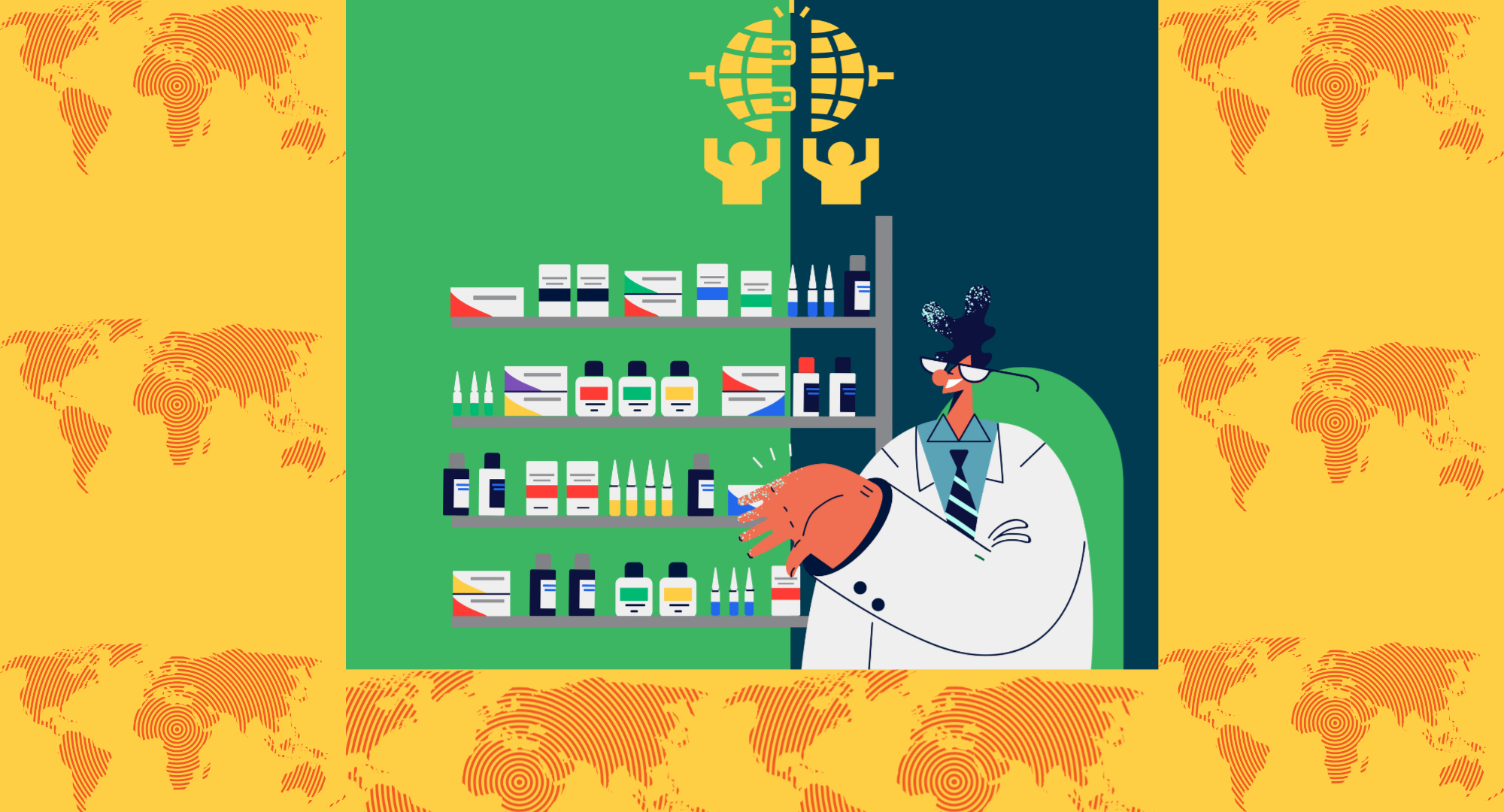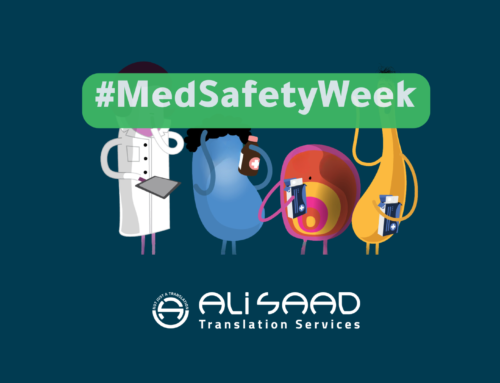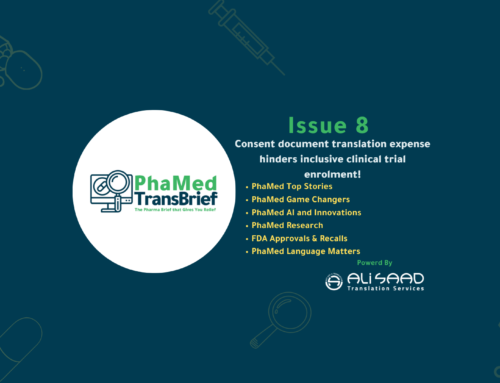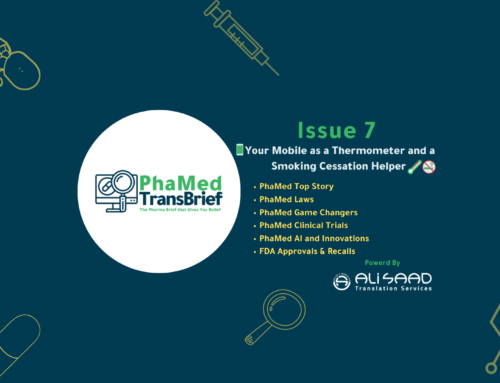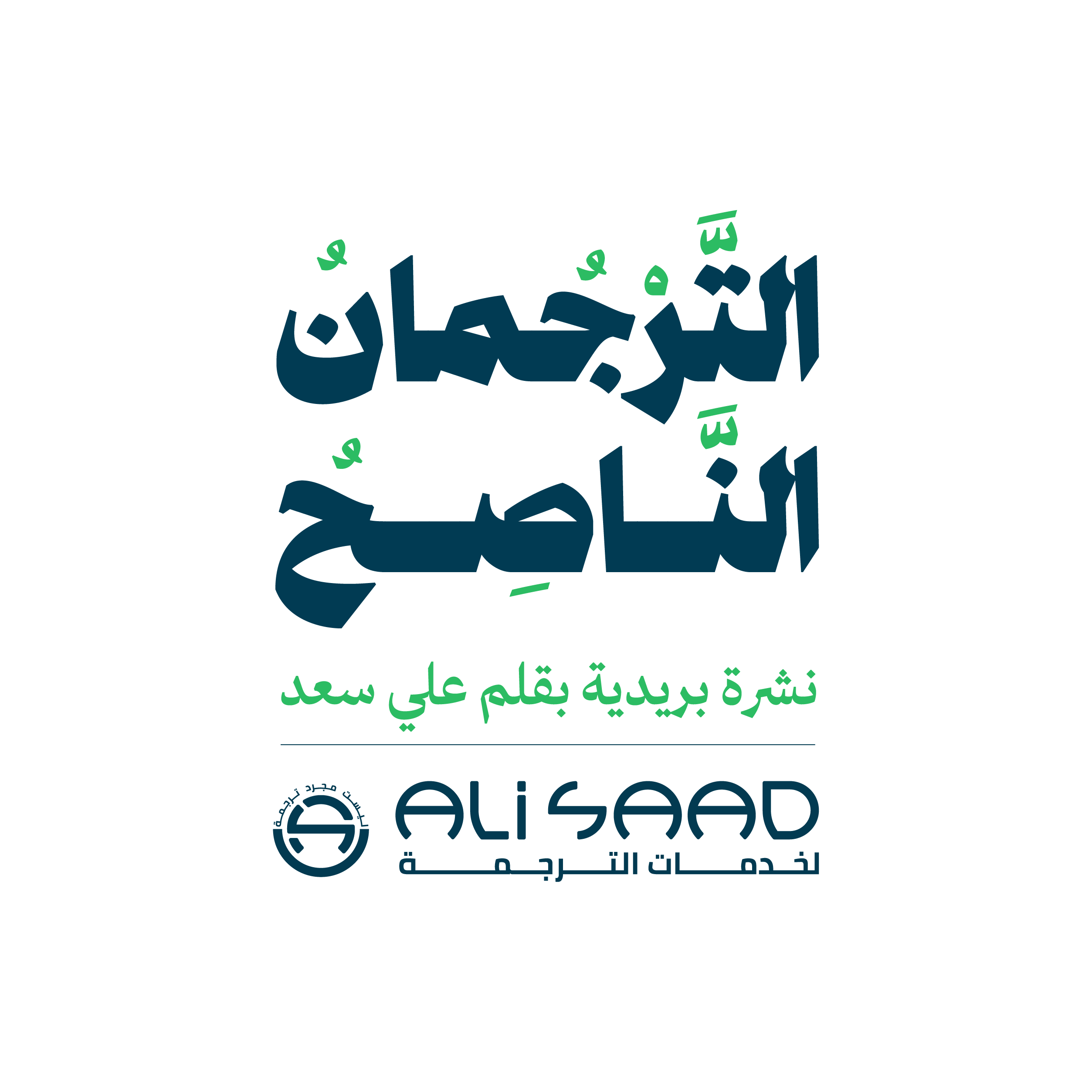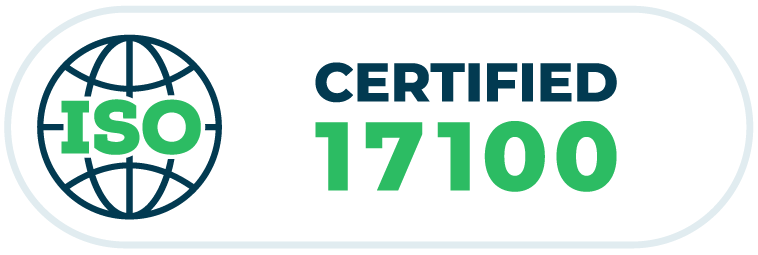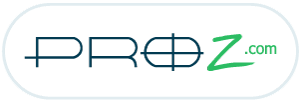Short Story
Let us reflect on this short story below.
A large pharmaceutical company had just launched a new medical product to treat a rare disease. The medicine had undergone extensive clinical trials, and the company was confident in its efficacy.
The company had decided to expand its operations in the Middle East and North Africa. They had received a request from a potential client, a hospital in the Arab Gulf region.
The company’s marketing team worked diligently to create marketing materials and a patient information leaflet in Arabic. They searched for the cheapest non-certified translation agency to translate the documents into Arabic, confident they had done their due diligence and saved much money for their boss.
They didn’t realize that the translation agency had used a junior translator with a poor understanding of pharma texts, and the translation contained several errors and mistranslations.
Unfortunately, the translator translated the texts through machine translation software without post-editing. The translation agency didn’t also apply a second-eye revision to save extra cents.
The company representatives presented the marketing materials to the hospital. Still, the hospital’s medical staff noticed several mistakes in the translation, which left them concerned about the accuracy of the drug’s information.
The hospital decided not to purchase the medicinal product, citing concerns about its safety and efficacy.
The pharmaceutical company had lost a potentially significant client due to a mistranslation that could have been avoided with a reliable Arabic translation service. The company’s reputation was tarnished, and they knew it would be challenging to regain the trust of hospitals and healthcare providers in the region.
The company’s CEO was furious when he found out what had happened. He knew that the mistranslation could have been avoided if they had taken the time to partner with a professional Arabic translation services provider.
In the end, the company realized that language barriers were a significant challenge in its expansion plans. They partnered with an ISO 17100-certified Arabic translation service provider to ensure that all their documents were accurately translated into Arabic.
That day, the pharmaceutical company learned a valuable lesson – the importance of reliable and accurate translation services, significantly when expanding into new foreign markets.
They regained the trust of the hospital and other healthcare providers in the region, but the incident reminded them never to take translation lightly.
Challenges Facing the Pharmaceutical Industry
Regulation
The pharma industry operates in a highly regulated environment. Pharmaceutical products must meet stringent regulatory requirements before being approved for sale. This includes regulatory compliance with labeling, packaging, and clinical trial documentation.
Intellectual Property
The pharma industry relies heavily on research and development to create new drugs. Intellectual property protection is crucial for companies to recoup the substantial costs of bringing new medicines to market.
Globalization
The pharma industry is increasingly global, with companies expanding their operations and markets across borders. However, this globalization has resulted in a greater need for multilingual communication.
In particular, companies must communicate effectively with foreign regulatory bodies, healthcare providers, and patients to gain approval for their products and increase sales.
Language Barriers
One of the main challenges facing the pharma industry is the language barrier. Pharmaceutical products must be labeled and marketed in the language of the target market, and clinical trial documentation must be translated into the language of the regulatory authority.
Failure to accurately translate these documents can result in regulatory rejection, product recalls, and costly legal action.
How Arabic Translation Services can help:
Arabic is one of the world’s most widely spoken languages, with over 420 million native speakers. It is the official language of 26 countries, making it an essential language for pharmaceutical companies looking to expand their operations globally.
Arabic translation services can help the pharma industry overcome the language barrier by providing accurate and culturally appropriate translations of clinical trial documentation, labeling, packaging, and marketing materials.
Regulatory Compliance
Arabic translation services can ensure that clinical trial documentation is accurately translated into Arabic, complying with regulatory requirements.
This can help pharmaceutical companies navigate the complex regulatory environment and gain approval for their products faster, increasing their chances of success in the market.
Intellectual Property Protection
Arabic translation services can help pharmaceutical companies protect their intellectual property by accurately translating patents, trademarks, and other legal documents into Arabic.
This can help prevent intellectual property theft and protect the company’s products in the Arabic-speaking market.
Multilingual Communication
Arabic translation services can help pharmaceutical companies communicate effectively with foreign healthcare providers and patients. This can include translating patient information leaflets, packaging, and labeling into Arabic, ensuring that patients can understand the benefits and potential risks associated with the product.
In a nutshell, the pharma industry faces many challenges, but Arabic translation services can help to overcome them. By providing effective communication, regulatory compliance, and intellectual property protection, Arabic translation services can help pharmaceutical companies succeed in the Middle East and North Africa.

